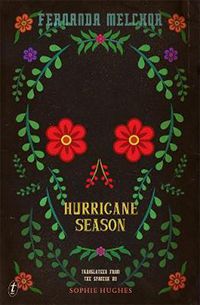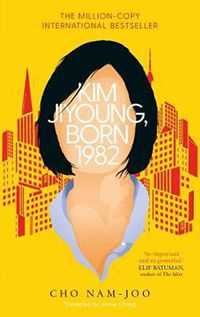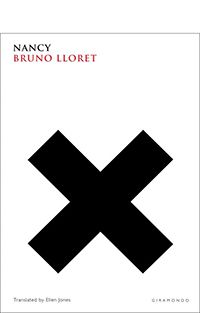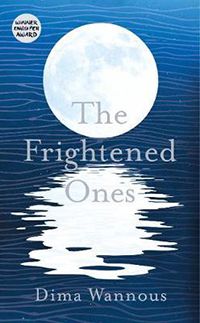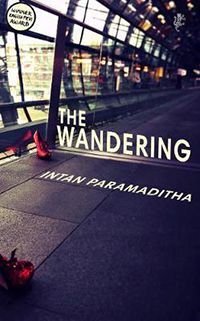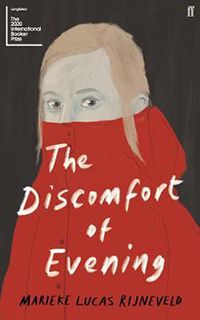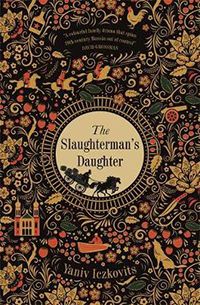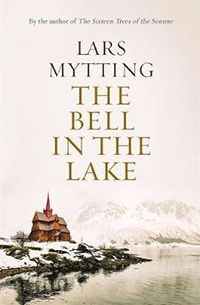If you’re looking to read more works in translation this year, we’ve compiled a list of 12 new works of fiction that bring you voices from around the world.
Hurricane Season by Fernanda Melchor (translated by Sophie Hughes)
The Witch is dead. After a group of children playing in the murky waters of the irrigation canals discover her decomposing corpse, the village is rife with rumours and suspicions about the murder of this feared and respected woman, who had carried out the community’s ritual shamanic customs. Inspired by a real event of the murder of a woman in rural Mexico, Melchor spins a terrifying and heartrending tale of dark suspense in a Mexican village that seems damned.
Kim Jiyoung, Born 1982 by Cho Nam-Joo (translated by Jamie Chang)
When Kim Jiyoung starts exhibiting bizarre behaviours, her husband takes her to a psychiatrist. What follows is a succinct account of Jiyoung’s life in a persistently sexist world, from birth to elementary school, from the office to her days at home caring for a small baby. Riveting, original and uncompromising, this South Korean sensation raises questions about endemic misogyny and institutional oppression that are relevant to us all.
Nancy by Bruno Lloret (translated by Ellen Jones)
In a small city in northern Chile, a dying woman relives her life in vivid detail. The breakup of her family, the disappearance of her brother, the defection of her mother - snapshots in which sex, violence and poverty sit against the oppressive and ecstatic backdrop of religious belief. The striking layout of this novel uses bold Xs which can be read in many ways: as scars, marks on a treasure map, or the striking out of reality, like the cancer that threatens Nancy’s life and memories.
The Frightened Ones by Dima Wannous (translated by Elisabeth Jaquette)
Suleima and Nassim first meet in their therapist’s waiting room in Damascus and begin a tenuous relationship. After civil war breaks out, Nassim leaves - alone - for Germany. He sends Suleima a manuscript about a woman whose experiences are very close to her own. As Suleima reads, time folds in on itself and her sense of identity unravels. Bold and contemporary, The Frightened Ones is an intimate reckoning of living with fear.
The Wandering by Intan Paramaditha (translated by Stephen J. Epstein)
You’re desperate to escape your boring life teaching English in Jakarta, to go out and see the world. So you make a Faustian pact with a devil, who gives you a gift, and a warning. Where will you choose to go? To New York or Berlin? Lima or Tijuana? The Wandering is a playful, choose-your-own-story experiment that explores the highs and lows of global nomadism, the politics and privileges of travel and desire, and the freedoms and limitations of the choices we make.
Mac and His Problem by Enrique Vila-Matas (translated by Margaret Jull Costa & Sophie Hughes)
Mac, over sixty and recently unemployed, lives on his wife’s earnings and decides to keep a diary. Mac’s wife, Carmen, thinks he is simply wasting his time and risking sliding further into depression - but Mac persists, and is determined that this diary will not turn into a novel. One day, he encounters his neighbour, a highly successful author who once wrote a collection of enigmatic, wilfully obscure stories….
The Discomfort of Evening by Marieke Lucas Rijneveld (translated by Michele Hutchison)
Ten-year-old Jas has a unique way of experiencing her universe: the feeling of ointment on her skin as protection against harsh winters; the texture of green warts, like capers, on migrating toads; the sound of ‘blush words’ that aren’t in the Bible. But when a tragic accident ruptures the family, her curiosity warps into a vortex of increasingly disturbing fantasies that threatens to derail them all. Rijneveld’s radical debut novel is studded with images of wild, violent beauty.
The Blessed Rita by Tommy Wieringa (translated by Sam Garrett)
Paul takes care of his father in an old farmhouse. His world is changing: his small Dutch village is now home to Chinese restaurateurs, Polish plumbers, and Russian thugs. Saint Rita, the patron saint of lost causes, watches over Paul and his best friend, but even she cannot protect them from the tragedy that is about to unfold. In this sharply observed, darkly funny novel, Wieringa highlights people struggling at the margins of a changing world.
The Sweet Indifference of the World by Peter Stamm (translated by Michael Hofmann)
Christoph, an older man who is a writer, has a story to share with Lena, a younger woman who is an actress. A long time ago, he was in a relationship with a woman called Magdalena, who was also an actress. Lena is currently in a relationship with a man called Chris, who is also a writer. As the two talk, it becomes clear that the two relationships contain echoes, similarities, and coincidences too remarkable to be called coincidences.
Summer Light, and Then Comes the Night by Jon Kalman Stefansson (translated by Philip Roughton)
In a village of four hundred, the infinite light of an Icelandic summer makes its inhabitants want to explore, and the eternal night of winter lights up the magic of the stars. The village becomes a microcosm of the age-old conflict between human desire and destiny, between the limits of reality and the wings of the imagination. With humour, poetry, and a tenderness for human weaknesses, this prize-winning novel explores the question of why we live at all.
The Slaughterman’s Daughter by Yaniv Iczkovits (translated by Orr Scharf)
The townsfolk of Motal are shocked when Fanny Keismann - devoted wife, mother of five and celebrated cheese farmer - leaves her home and vanishes into the night. Surely there can be no link between Fanny and the peculiar roadside murder which has left Colonel Novak, head of the Russian secret police, scratching his head. Surely that could have nothing to do with Fanny, whatever her past, whatever her reputation as a wilde chayeh, a wild beast …
The Bell in the Lake by Lars Mytting (translated by Deborah Dawkin)
In the Norwegian village of Butangen in 1880, Astrid dreams of a different life. The new pastor wants to tear down the 700-year-old church with its carvings of pagan deities and bells forged by Astrid’s forefather. Talented architecture student Gerhard Schonauer arrives from Dresden to oversee the removal of the church and its reconstruction in the German city. Astrid must make a choice: for her homeland and the pastor, or for an uncertain future in Germany. Then the bells begin to toll…


